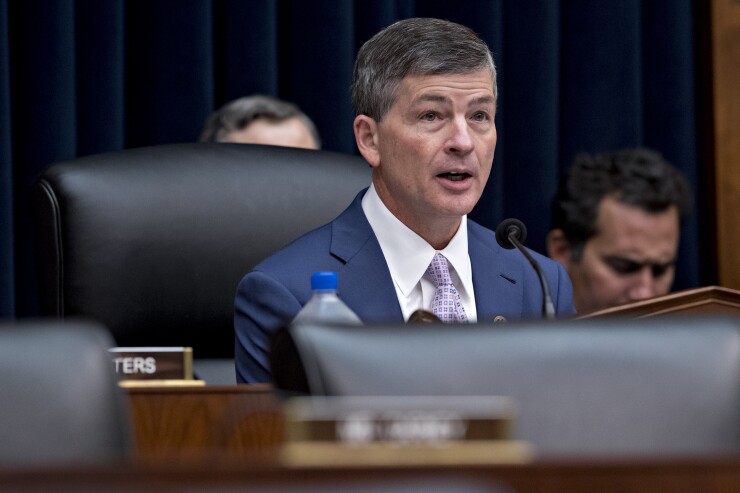WASHINGTON – The revised version of the Financial CHOICE Act cleared its first hurdle on Thursday, with the House Financial Services Committee approving it with a 34 to 24 party line vote.
The final vote capped a lengthy voting session that spanned three days and included numerous Democratic amendments that were offered but ultimately rejected. The legislation now moves to the full House for consideration but those watching the wide-ranging bill have said it may face challenges moving through the House without any Democratic support. If it does pass the House it is at best expected to be dealt with in pieces in the Senate that can move forward with bipartisan support.

The CHOICE Act, which contains several provisions related to the municipal market, is designed to be a replacement for the Dodd-Frank Act and is the second version of such a bill from Financial Services Committee chair Jeb Hensarling, R-Texas. The first version, introduced during the last congressional session, cleared the Financial Services Committee but then stalled in the House.
Republicans speaking during the multi-day voting session praised the bill as a needed response to the damage that the Dodd-Frank Act has done to the U.S. economy and financial sector. But Democrats repeatedly blasted the CHOICE Act as an ill-conceived attempt to cater to big banks and hurt the American people.
The bill includes both muni-specific provisions as well as those that would affect the SEC and thus munis more broadly.
It would require that the Securities and Exchange Commission’s Office of Municipal Securities begin reporting to the SEC’s Division of Trading and Markets instead of directly to the SEC chair. It would also reallocate the fines the Municipal Securities Rulemaking Board receives from enforcement actions over violations of its rules to the Department of Treasury.
The revised CHOICE Act keeps a provision from the previous version that makes clear municipal issuers aren't required to have a municipal advisor. The provision is tied to a previous bill from Rep. Randy Hultgren, R-Ill., that responded to concerns his office had after hearing that issuers were being told they had to hire MAs under the SEC’s MA Rule.
Another portion of the draft CHOICE Act lays out considerations that agencies like the SEC must take into account when analyzing proposed rulemakings. Among other things, the SEC would have to include: an identification of the need for the regulation and the regulatory objective; an analysis of the adverse impacts regulated entities and other market participants could experience; and a quantitative and qualitative assessment of all anticipated direct and indirect costs and benefits of the regulation. The draft legislation further explains similar requirements for notices of final rules.
The new act would also require the SEC to conduct a regulatory impact analysis on each of its rules within five years of their publication in the Federal Register. It would require that the SEC do a retrospective review of its existing rules within one year of the act’s enactment and then every five years thereafter. The SEC would have a year from the date the legislation is enacted to submit a report detailing a plan to subject the MSRB to the CHOICE Act’s regulatory analysis requirements.
One new addition to the act in this second version is the intended creation of an advisory committee on the SEC’s enforcement policies and practices. The SEC chair would have six months after the legislation is enacted to establish such a committee, which would be assigned to analyze the commission’s enforcement policies and procedures, and determine how closely those procedures are being followed, among other things. The SEC would also have to appoint an enforcement ombudsman within 180 days of the act’s enactment and allow the SEC to triple monetary fines in administrative and civil actions where penalties are tied to illegal profits as well as in enforcement cases dealing with repeat violators of laws and rules.
Individuals would be allowed under the rule to force the commission to end an SEC administrative action that has been brought and instead have the matter brought as a civil action.





